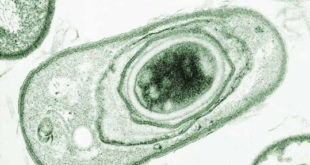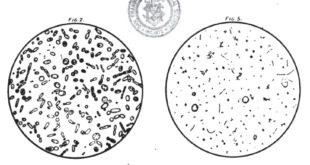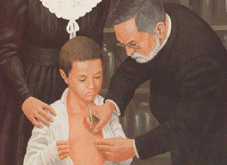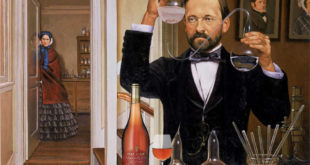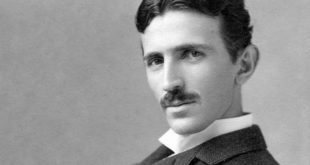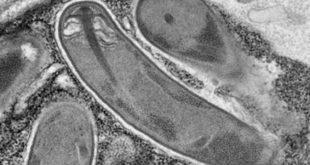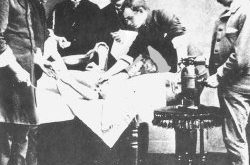DISCOVERED sometime in 1800s, antibiosis, as what antibiotics were originally called, was first discovered by Louis Pasteur and Robert Koch when they learned that certain airborne bacteria could inhibit the growth of another bacteria what is now called Anthrax. Read the full article…
Read More »Tag Archives: Louis Pasteur
Louis Pasteur: Infusorian Animalcules Living Without Free Oxygen
Comptes rendus de l’Académie des sciences 52 (February 25, 1861): 344-47; Reprinted in Oeuvres de Pasteur, vol. 2, pp. 136-38. Translation by A.S. Weber. The variety of products formed by the so-called lactic fermentation are well known. Lactic acid, a gum, mannite, butyric acid, alcohol, carbonic acid and hydrogen appear simultaneously or successively in extremely variable and quite unexpected proportions. …
Read More »Louis Pasteur: “Science and the Applications of Science”
During a long and productive career, Louis Pasteur established himself as one of the most famous figures in the history of science, one whose researches, cutting across many fields of endeavor, had a profound impact upon our health and understanding of a range of fundamental physicochemical and biological phenomena. Of the many topics which occupied Pasteur’s attention during five decades, …
Read More »Toasting Louis Pasteur
“Louis Pasteur was the father of enology,” declared the tour guide who showed us through Pasteur’s stuffily decorated, bourgeois home in Arbois, which was also a former tannery along a river. It was an accurate statement. Everything that’s technically good about wine today, we can trace to Pasteur. Read the full article…
Read More »Athletes as Role Models
It is a tragic world in which physical prowess is more admirable than intelligence. For every widely known Joe Montana, Alex Rodriguez, and Kobe Bryant, there is a Nikola Tesla, Marie Curie, and Louis Pasteur who is forgotten, even though the contributions of the latter held much greater importance to society. Read the full article…
Read More »Dirt – an exhibition of our fear of filth
Filth had always been associated with illness but, before the late 19th century when Louis Pasteur proved the germ theory of the transmission of disease, contagion was thought to be borne by noxious air, or miasma. Read the full article…
Read More »Dirt: Grime and reason
The word “bacteria” would not emerge until the mid-19th century, when the germ theory of disease was developed in the work of Louis Pasteur and Robert Koch. Antibacterial remedies were created in the early 20th century, and so we are armed against an enemy we cannot see. Read the full article…
Read More »Are We Too Clean For Our Own Good?
Our modern understanding of hygiene is based in large part on Louis Pasteur’s invention of pasteurization in the 19th century. Pasteur, who was not a medical doctor, believed that the blood and tissue of a healthy organism should be completely sterile. Read the full article…
Read More »The Tiny Parasite That’s Decimating Bee Populations
The first microsporidian identified was found infecting silkworms. In 1870, Louis Pasteur, the French chemist who invented the process of pasteurization, blamed it for a disease that had decimated the industry. Initially, they were classified as fungi, then renamed protists, a catch-all group for complex micro-organisms. Read the full article…
Read More »Louis Pasteur’s Views on Creation, Evolution, and the Genesis of Germs
This article was originally published on February 25, 2008 and has been reproduced here with the permission of the Answers Research Journal. Abstract “There is no remembrance of men of old, and even those who are yet to come will not be remembered by those who follow.” Ecclesiastes 1:11 (NIV) In past years revisionist historians have been rewriting the worldview …
Read More » Pasteur Brewing Louis Pasteur – Science, Health, and Brewing
Pasteur Brewing Louis Pasteur – Science, Health, and Brewing 